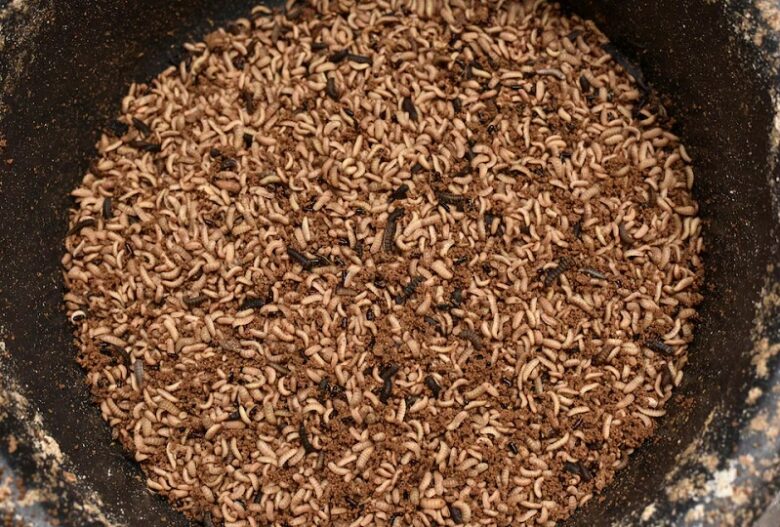At an orphanage in Kinshasa, the capital of the Democratic Republic of Congo, over 60 children looked nervously at their plates of palm weevil larvae fried with spices before tentatively trying the thick white worms.
The orphans are being served the protein-rich larvae, known locally as mpose, as part of an initiative by the Kinshasa-based non-profit organisation Farms For Orphans, which seeks to combat malnutrition in the West African nation.
The World Food Programme reports that around one quarter of the Democratic Republic of Congo’s 99 million population is facing a food crisis, with half of all orphans suffering from malnutrition.
Research into edible insects, such as larvae, is growing due to their potential as a sustainable alternative protein source to meat.
This includes their use for human consumption in Congo and for animal feed in Benin.
As stated by the U.N. Food and Agriculture Organisation, insects can provide a rich source of fat, protein, vitamins, fiber, and minerals.
Francoise Lukadi, an agricultural engineer running Farms for Orphans, stated, “It is scientifically proven that meat does not have a higher protein concentration than insects, and it’s not easy to get meat, so we wanted to make it simpler.”
She highlighted that nutrient deficiency is especially critical in children under five. The larvae are usually prepared with onions, peppers, and tomatoes, offering a taste reminiscent of cheese.
“Nelly Mimpi, a nutritionist and food health supervisor at the orphanage, emphasized, “It is important for children to eat mpose because of the proteins, because some children are abandoned in a state of malnutrition.”
Initially funded by the Bill and Melinda Gates Foundation for research and launch, Farms for Orphans now aims to scale larval production to support commercial sales. The revenue generated will be used to subsidize donations to orphanages.
The organisation currently supplies four restaurants in Kinshasa, where palm worms are gaining popularity.
Francoise Lukadi’s team produces up to 300 kilograms (661 pounds) of palm larvae per month and serves meals to several hundred children per quarter.
However, she aims to increase production to meet the rising commercial demand.
Despite her team’s efforts to study sustainable larvae growth and harvesting techniques in laboratories at the University of Kinshasa and the National Institute of Biomedical Research, some critics argue that scaling up production to meet commercial demand may be challenging due to insufficient resources.
Several peer-reviewed studies have suggested that commercial-scale insect farming could potentially pose food safety risks, particularly because some insect farming relies on feed crops that could otherwise be used directly for human consumption.
Meanwhile, farmers in Benin are exploring the possibilities of insect protein as well.
At the forefront of a group of young poultry farmers called the Elevart Group in Cotonou, Benin, Jules Mahinou, 25, breeds black soldier flies to produce protein-rich larvae for animal feed.
“Currently, we’re working with minimal resources. Everything is done manually,” Mahinou said, expressing aspirations to mechanise operations and develop substitutes for fish and soybean meal.
YOU MAY ALSO READ: Lagos agog as Afrobeat star Davido weds his lover Chioma









Got a Question?
Find us on Socials or Contact us and we’ll get back to you as soon as possible.